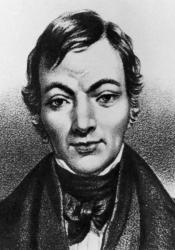Communism and Robert Owen
The footnotes in the book are clear to point out that the Communism in Mary Barton is not the Communism of today. The largely negative connotations that readers from America have on Communism would not be present in Gaskell’s England. A large reason is because Mary Barton was published the same year that The Communist Manifesto was published and the manifesto was only released in German (Gaskell, edited by Foster). That means the Communism in the minds of Gaskell’s readers is not entirely the Communism of Marx and Engels. Despite this fact, the Communism of Gaskell’s time still advocated for socialist values and communal betterment. A leading proponent of Communism at the time was a factory owner named Robert Owen. Owen worked to better the working and living conditions of the lower class: some “described him as ‘the great pioneer’ in the fields of ‘rational education, factory legislation, trade unionism, cooperation, labour exchanges, work for the unemployed, the emancipation of women, penal reform and international peace’” (Robert Owen and his Legacy). Here in this description we can see the main tenets behind Marx and Engels hopeful vision of what the implementation of Communism can do in a community of the working class.
Gaskell, Elizabeth. Mary Barton, edited Jennifer Foster. 1848, Broadview Literary Texts
Robert Owen and his Legacy, edited by Chris Williams, and Noel Thompson, University of Wales Press, 2011. ProQuest Ebook Central, https://ebookcentral-proquest-com.pointloma.idm.oclc.org/lib/pointloma-e....

